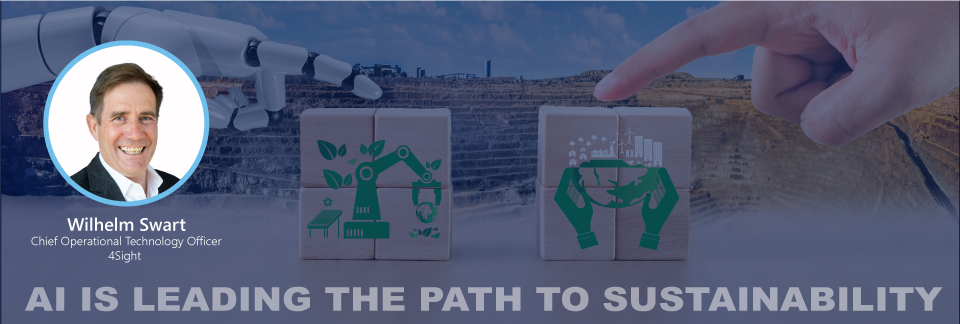Blog
Revolutionising Mining: How AI is Leading the path to sustainability

In recent times, the mining industry has faced growing scrutiny for its environmental impact, especially in terms of carbon emissions. As a result, many mining companies are now diligently exploring ways to reduce their carbon footprint and integrate sustainable practices into their operations.
One remarkable solution emerging in this journey is the application ofartificial intelligence (AI), a powerful toolset that empowers mining companies to execute effective decarbonisation strategies. In this article, we delve into how AI is revolutionising the mining sector and paving the way for a more environmentally responsible future.
Optimising Energy Consumption
Mining operations are notorious for their high energy consumption, often relying on fossil fuels for power generation. AI emerges as a saviour in this regard, offering the capability to optimise energy consumption through the analysis of vast datasets. Machine learning algorithms, for instance, can forecast energy demands, enabling companies to adjust consumption patterns accordingly and thereby reduce their dependence on carbon-intensive energy sources.
Enhancing Fuel Efficiency
A significant proportion of carbon emissions in the mining sector stem from heavy machinery and vehicles. AI’s potential in improving fuel efficiency here is immense. Predictive maintenance algorithms can identify issues before they escalate, ensuring timely repairs and minimising the risk of breakdowns. Furthermore, AI can optimise transportation routes and schedules, significantly reducing overall fuel consumption in mining operations.
Minimising Waste and Emissions
AI is a valuable ally in the mission to reduce waste and emissions. By employing AI-powered data analytics, mining companies can gain a deeper understanding of the Earth’s crust, enabling them to target specific minerals or metals with pinpoint accuracy. This precision reduces the volume of waste material extracted and lowers the energy required for processing, ultimately leading to a significant reduction in carbon emissions. The technology of carbon capture and storage (CCS) holds immense promise for mitigating carbon emissions from industrial processes. AI steps in to optimise CCS systems, analysing data to identify the most efficient ways to capture, transport, and store carbon dioxide. By doing so, AI-powered optimisation can help mining companies cut the costs associated with implementing CCS technology, making it a more feasible option for the industry.
Renewable Energy Sources
AI can also play a pivotal role in supporting mining companies during their transition to renewable energy sources like solar or wind power. AI algorithms analyse weather patterns and energy consumption data, predicting the optimal times for generating and storing renewable energy. This ensures a consistent energy supply even during periods of low sunlight or wind, enabling mining companies to reduce their reliance on fossil fuels and lower their overall carbon emissions.
Summation
In a world where the global community is actively pursuing a more sustainable future, the mining industry is tasked with adapting to remain competitive and meet the rising demand for environmentally responsible practices. AI offers a plethora of tools that empower mining companies to implement decarbonisation strategies, ranging from energy consumption optimisation to aiding the transition to renewable energy sources. By harnessing the power of AI, the mining sector can work tirelessly towards a greener future, extracting precious resources while safeguarding the health of our planet.

As you embark on this journey toward a more sustainable mining industry powered by AI, we invite you to contact us at 4Sight for expert guidance and solutions tailored to your specific needs. Let us join hands to pave the way for a greener and more environmentally responsible future in the mining sector. Your commitment to sustainability starts now.
Contact Details
Wilhelm Swart | Chief OT Officer - This email address is being protected from spambots. You need JavaScript enabled to view it.

